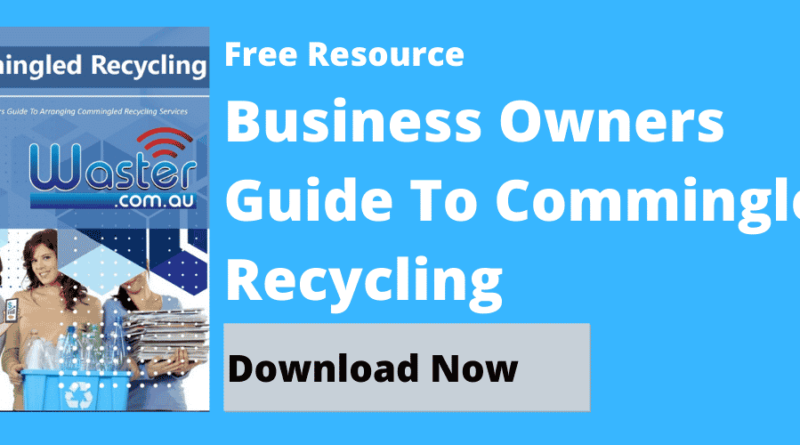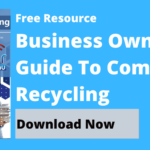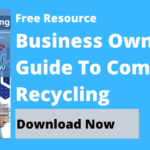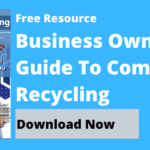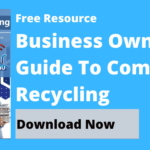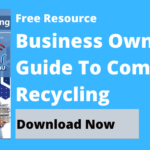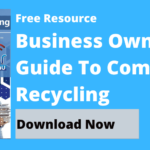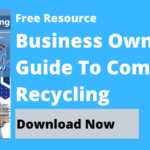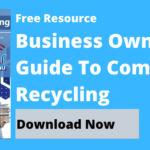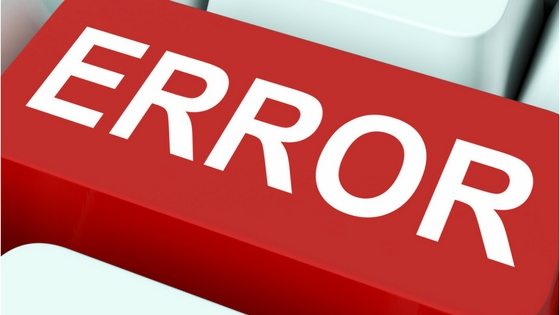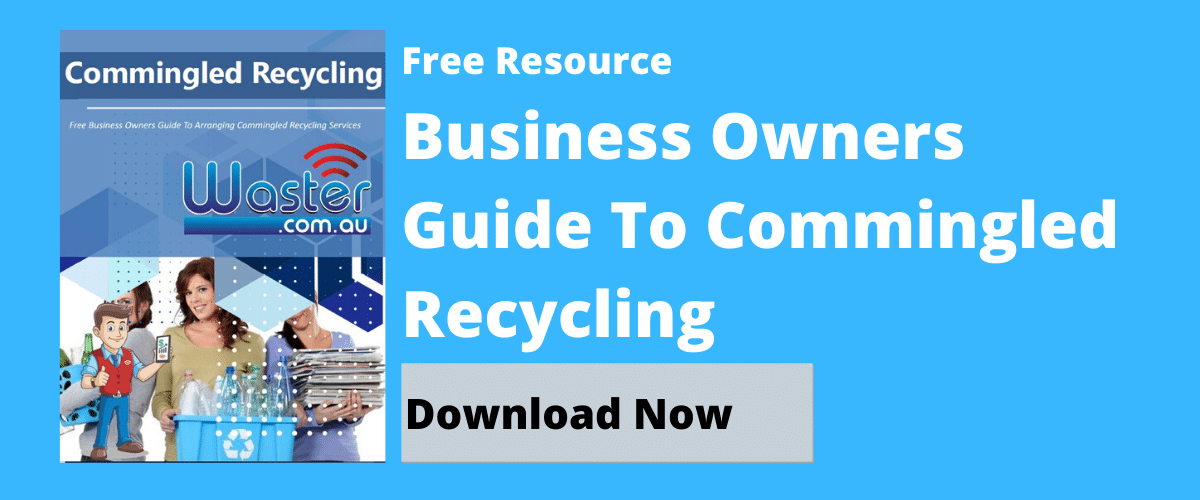What Free Cardboard Recycling Really Means ♻️ Podcast Ep. 29 Don’t Be A Waster
Energy Disrupter
What Free Cardboard Recycling Really Means ♻️ Podcast Ep. 29 Don’t Be A Waster
Listen on Apple Podcasts Listen on Spotify Listen on Google Podcasts Listen on Stitcher Listen on Amazon Music
Transcript: What Free Cardboard Recycling Really Means
Hello and welcome to another edition of our recycling podcast, Recycle: Don’t be a Waster! In today’s podcast, we’re going to cover a topic that is probably the most simple: recycling service cardboard. But one of the questions we get asked is, “Can I get free recycling?” “Will somebody come and pick up my cardboard for free?” you know, so I think we’re going to go into a little bit, on I suppose, the economics of cardboard, how it actually works and maybe give people an insight into, I suppose, the recycling market. In general, um, you know, recycling, I suppose we, you, often hear the term resource recovery and that a lot of companies talk about themselves.
>Download Now: Free PDF Business Owners Guide To Commingled Recycling Bin Services
In that regard, which you… you could argue, is a form of greenwashing, or… or… wish cycling, um… you know, pretending to be greener than you are etc. But fundamentally, if something is a valuable resource, nobody is going to throw it in the bin. People are going to recycle, it reuse it, you know, and take advantage of it. At the end of the day, if you’ve got old gold jewellery, gold jewellery that you don’t need anymore, you don’t throw in the bin. You… you, recycle it or sell that gold so it’s melted down and formed into a new… new jewellery.
And that, you know, in a much probably less financially incentivized manner ,recycling cardboard, recycling… is the same. So the way the cardboard recycling market works is it’s probably, maybe, yellow aluminium is more, but cardboard is probably the most internationally… sam… developed recycling market. It’s traded on international exchanges. You can go online and check almost like shares or, like, you know, commodity. Coal prices or oil prices you can see the price for second-hand cardboard, um… in the Asian market where it’s internationally traded.
Act 2:What Free Cardboard Recycling Really Means
So it is a valuable commodity and it is easily recycled, um… fundamentally. Then, once an item is is picked up and recycled, it’s turned into pulp, or… or the cardboard pulp material, and then it’s used to make new boxes etc. So with that, there is, um… people buy that product and the value. Let’s just say, obviously, it fluctuates, but the value in Australia, it depends on where you’re located. Clearly, the closer you are to a major port or major city, it’s probably cheaper because the… the the cost to get the the transport cost etc. are reduced.
But, let’s just say 200 per ton is a, you know, five or ten-year average price of the… the cardboard, um… and then, when it’s recycled. And so, in theory, what the economics of picking up cardboard and, um… recycling cardboard, I suppose, they really work in this regard. Somebody goes to your location, picks up cardboard that you have and takes it away, processes that cardboard and then sells it for a price. Um… clearly, then you know if they’re getting, let’s say, the two hundred dollars per ton the price that they will pay you, or that you will pay them to take that cardboard away clearly depends on a number of factors.
Clearly, the more cardboard you have, um… the cleaner the cardboard, the easier it is to access the, um… if it’s in bulk, if it’s already in in bales or compacted, that makes it much more cost-effective for any recycling company to come and get it. So when we talk about free carbon recycling, um… like, there’s often, I suppose, the major problem is transport. Any domestic house would be able to drop off their own domestic cardboard for free at a recycling centre because that recycling center has no transport cost. They’ll just package up that cardboard and get money from it.
Act 3:What Free Cardboard Recycling Really Means
Um… if you are a major corporate, you know you’re producing huge amounts of cardboard in the tons and tons every week and you bail and compact that cardboard, you actually may get paid for that cardboard through a re-bit format. And the way that generally works is if you have build or compacted cardboard, somebody will come, you know, with a flatbed truck. They’ll pick up those, those… that those tons of cardboard, um…
Take it away. That’ll be weird, uh… the recycling company then will get, you know, less than that. 200 per ton and then they might pay you a rebate, reflecting how much you’ve provided. So there’s a …there’s a share basis when you’re talking much lower volumes, um… you know, you know, 30 or 40 boxes a week. The economics don’t really stack up because clearly, there’s a… somebody’s got to provide you with a bin. Someone has to provide the truck driver to drive there, to empty that cardboard.
So they’re real costs in collecting that. And the efficiency is not to the same extent. But what you will see is there’s still, I would argue, that in that instance, it’s very very unlikely to get free cardboard because the costs, you know, operating in Australia as we know, trucks petrol, uh… driver time are significant especially driving through major cities with traffic. But what you will see is that the price will be subsidized to a large extent because the actual end product is valuable.
Act 4:What Free Cardboard Recycling Really Means
So companies will charge you less significantly less for that cardboard service than you would be charged for commingled recycling or for general waste. And so, you are receiving a much, you know, a lower price and that is caused by the economics and the rebate basis to actually receive a rebate. You know,the rule of thumb would be that you’d have to, let’s say, the transport charge for the truck going to your location. And let’s say that’s again two hundred dollars, and then, let’s say that your… the truck would need to pick up a certain pers or certain number of bills equaling a certain tonnage so that you would be paid a rebate.
And the rebate that some people are paid obviously depends on the commercial arrangements. But it could be, you know, 20 to 40 to 50 percent of… of the total value of that cardboard, so you might be receiving forty dollars a ton. Clearly then, if you’re receiving for that one transport of two hundred dollars, if you’ve got five tons of cardboard, well then, you probably are receiving free… free… free cardboard collection.
So… so, that’s the way, I suppose, to think about it clearly, the more you produce, the higher quality that cardboard is the easier it is to access. The lower the collection costs are for the company um… clearly, your chance of getting free or even subsidized or paid for your cardboard are significantly higher. One thing we do we get queries all the time will we come to somebody’s house and pick up one or two cardboard boxes for free… for free. And like clearly, that won’t make much sense if the… the cost, you know, just on the back of an envelope the cost would be 200 per ton.
Clearly, one or two carbon boxes wouldn’t even weigh one or two kilograms you know the total value that’s very small a dollar or so dollar two dollars whereas the price, the time, the effort to go to some location and pick it up. You’re probably talking thirty forty fifty dollars so it doesn’t stack up in any way in the in… in that scenario but when you get into the big numbers, yes, it can make economic sense. So I hope that gives you a bit of an insight into, I suppose, it’s really commodities. It’s like any commodity business it’s taking something from one place to another selling it for something, and you know the economics of scale and efficiencies pay dividends. So we’ll leave it there today and again, Recycle: Don’t be a Waster!


